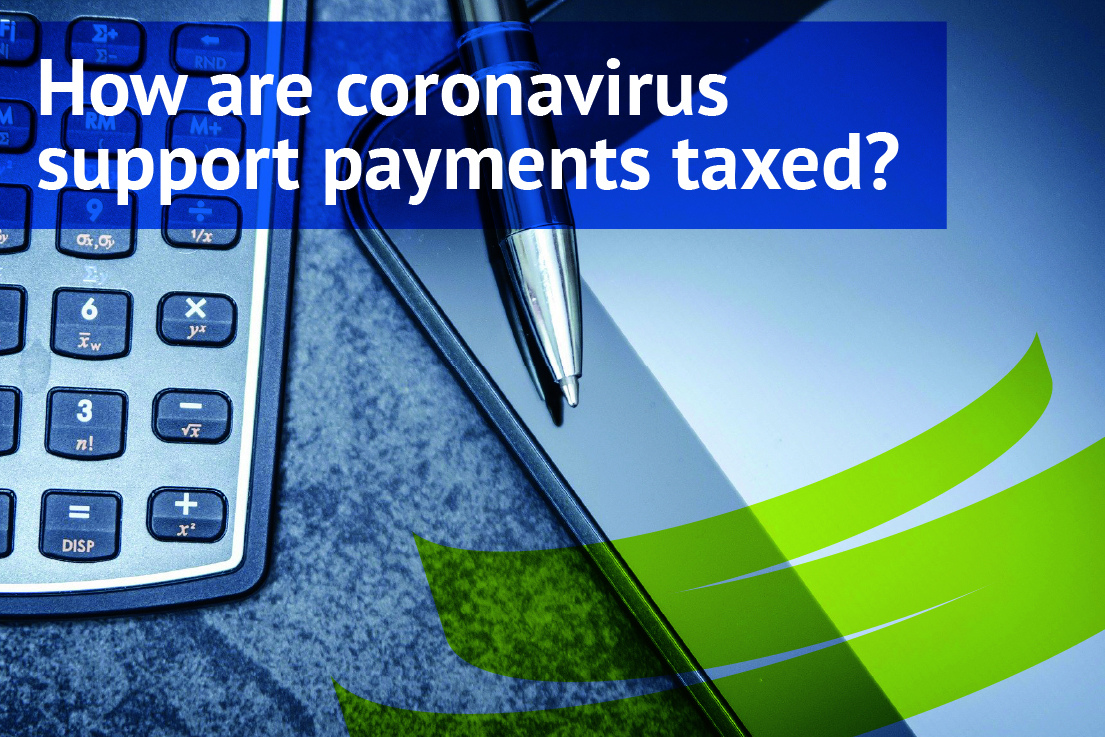How are coronavirus support payments taxed?
25th August 2020
The Finance Act 2020, which outlines legislation relating to taxes, duties, reliefs and exemptions, has now received Royal Assent. It’ll come as no surprise that this year’s Act included policies on how coronavirus support payments are taxed. If you’ve received any support grants or utilised the Job Retention Scheme, then it’s important you understand how these payments will be taxed so you don’t get caught out.
What’s included?
All payments under the following coronavirus support schemes are taxable under the legislation:
- Job Retention Scheme (furlough)
- Self Employment Income Support Scheme (SEISS)
- Statutory Sick Pay (SSP) rebates
- Business support grants – including the Small Business Grant Fund (SBGF), Retail, Hospitality and Leisure Grant Fund (RHLGF) and Local Authority Discretionary Grant Funds
- Any subsequent support scheme HMRC introduces
How are coronavirus support payments taxed?
All coronavirus support payments which are referable to a business are to be treated as revenue and will be subject to Income Tax or Corporation Tax as appropriate. If the payment is referable to more than one business, it is to be allocated on a reasonable basis.
If the business is no longer trading, it can be treated as a post-cessation receipt. Relevant expenses, such as any that would have been deductible against business income, can still be deducted, however you will not be allowed to deduct any costs arising from the cessation of the business.
For the purposes of taxing furlough payments, the person who is taxable is whoever is entitled to the payment as an employer – even if they aren’t usually considered the employer for other purposes. This might sound a little confusing but basically just means that if you are an employment agency and have been been paying furloughed employees then you are considered the employer in this instance, even though you aren’t from an employment law perspective. This also applies to anyone caught under IR35 rules.
How are SEISS coronavirus support payments taxed?
All payments under SEISS are referable to the business of the individual to whom the payment relates and will be treated as profits of 2021/21 – regardless of whether it falls within the relevant accounts. This is important to bear in mind as businesses with accounting periods ending early in the tax year might find the receipt falls into the 2021/22 period. You will not be able to deduct trading or property allowance from support payments.
If a payment has been made to a partner in a partnership and retained in full by that partner, then it does not need to be treated as a receipt of the partnership and should instead be allocated to that partner only. This is likely to apply if you are in a partnership where not all partners are eligible for the payment.
What is exempt?
There are some specific exemptions.
Payments relating to mutual activities of a business carrying on a mutual trade are not taxable.
You can also ignore support payments when calculating incoming resource limits for charitable exemptions and companies, and income limits for community amateur sports clubs.
No deductions can be made for the trading allowance from support payments
What happens if I make a mistake?
The Government and HMRC have been very clear that they will take action against fraudulent claims – particularly relating to the furlough scheme. Last month saw HMRC’s first arrest of someone suspected of fraudulently claiming £495,000 under the scheme. However, while the most serious cases are expected to be pursued, there is a secondary financial regime for others.
If you are not entitled to the amount you have received, you will be subject to a tax charge of 100% of any payment which you are not eligible for and have not already repaid. However, this only applies to employment schemes (Job Retention Scheme and SEISS). This is also the case if you are no longer entitled to the amount due to a change in circumstances or if you do not pay the costs the scheme was designed for – i.e. paying an employee’s salary.
SEISS grants are claimed in advance, so there is a possibility that if your circumstances change and your business is able to trade as normal that you would no longer be eligible.
Talk to the experts
We know understanding how coronavirus support payments are taxed can be confusing. If you have any questions or need further support, get in touch with our friendly team of tax experts.
All information correct at time of going to print/live and on the best knowledge and understanding of the author at the time. This article is for general information only and does not constitute financial advice or recommendations for individual circumstances. No responsibility is taken for any actions taken on the base of the information within this article.





